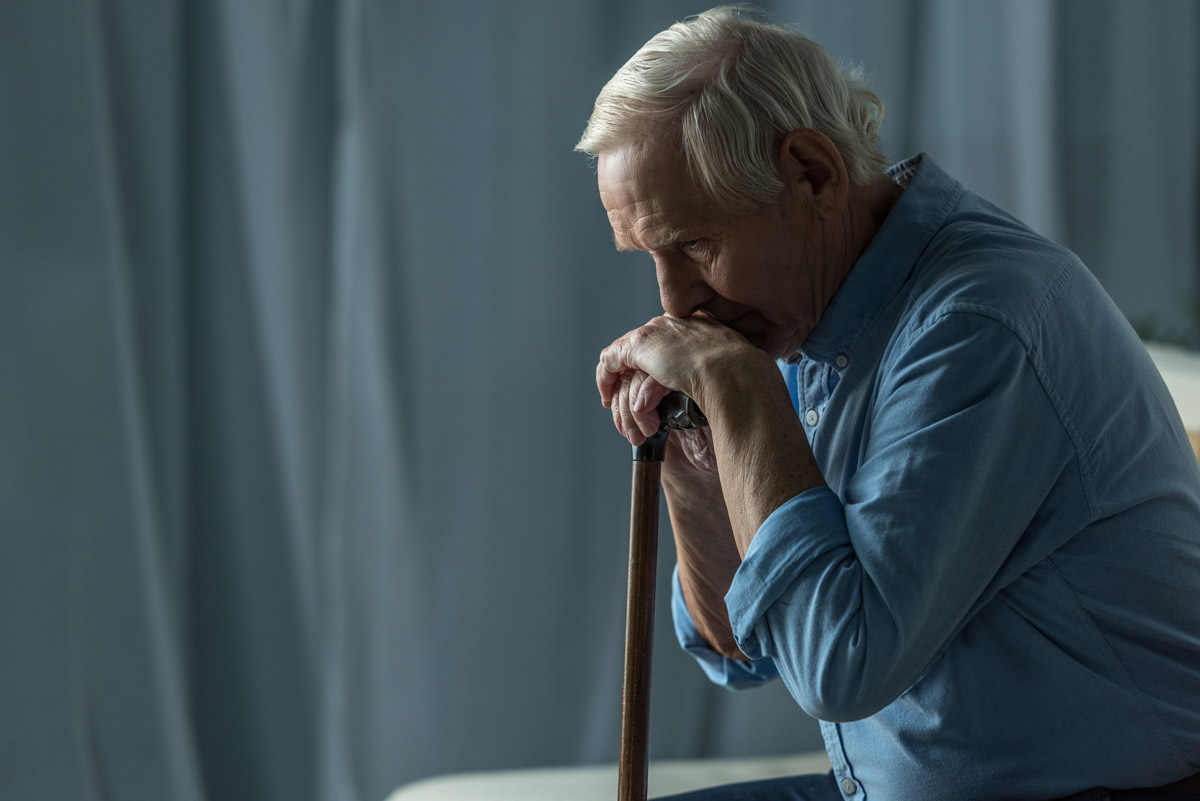Last year was not kind to the elderly. The pandemic brought serious health risks that forced everyone to isolate themselves. Even a quiet visit with grandma or grandpa wasn’t an option because a person could be infected and not know it for days.
It’s safe to say that life was very different in 2020.
The experience wasn’t all bad. Many were inspired to spread kindness. Others felt the importance of friends and family even more, during a time when we had to stay apart. We came to better appreciate the value of life and how we shouldn’t take it for granted.
Many seniors struggled with feelings of isolation. Their routines completed changed. Even those residing in an assisted living community still had to stay away from their neighbors in most cases.
Now that we are halfway through 2021, life is returning to normal – but not quite. It’s a normal that comes with the lessons that 2020 taught us. Getting back into a life without social distancing and fear of infection can be difficult.
Those with elderly parents should be there to provide support and assistance as mom and dad adapt to this new post-pandemic world. What can you do to help your elderly loved ones regain their confidence and independence after the COVID-19 outbreak?
Plan for Frequent Visits to Reconnect and Reaffirm
Chances are mom and dad really missed you. Social distancing was good for fighting the virus but also created mental health challenges. Older adults were hit especially hard as many felt isolated. Feelings of isolation can cause depression. It can also lead to unhealthy lifestyles.
Now that you can meet face to face, plan to do so. It may be a good time to plan more frequent meetings to help reassure your elderly parent that you are there for them.
You can still connect through video calls but try to also plan in-person visits. Many seniors prefer face-to-face interactions. And at any age, being close to loved ones can have a powerfully positive effect on health and wellbeing.
Discuss Their Worries and Suggest Therapy if Needed
Let mom or dad know that you are there to talk if they need you. If they express worries, doubt, or fears, do not be dismissive. Instead, listen to what they have to say and provide reassurance and suggestions to help them cope.
If your parent is struggling with anxiety, depression, or other mental health issues, you should help them connect with a therapist. Speak to their assisted living facility staff if you need recommendations. Never ignore these problems because they can worsen over time and begin to affect physical health as well as overall happiness.
Your parent’s regular doctor can also evaluate them to ensure that they are not experiencing the side effects of medication or the early signs of a neurological condition like dementia.
Do Not Rush Seniors into a Post-Pandemic Lifestyle
You may be ready to get out there and jump feet-first into post-pandemic life, but that doesn’t mean your elderly parents are as eager. Many still feel the effects of 2020. Senior citizens were among the hardest hit demographics, with 80% of COVID-19 deaths occurring in people over age 65. Understandably, they may be timid about getting back into society and socializing again.
Instead, let mom and dad ease into an active social life. Plan small gatherings and one-on-one visits. Organize a short trip to a quiet park with few people around. Take smaller steps to help them gradually regain their confidence.
Trying to do too much at once or with too many people can overwhelm an elderly person and cause them to feel fearful, uncertain, or even confused. That’s especially true after a year of little to no contact with others. Be patient and help your loved one ease back into a life that includes socializing.
Help Them Build a New Daily Routine
Structured routines are good for seniors. Knowing what the day will bring reduces stress and anxiety in older adults. It also helps them feel secure and safe. Many people dislike surprises. When they have a routine, they can plan out their day.
Seniors with cognitive or memory issues are especially sensitive to their routines. Having one helps them cope, especially when outside factors may be unpredictable. Even a person with dementia who may not be consciously aware of their routine will feel more grounded because they have one.
WebMD published a study that found that daily routines help senior citizens sleep better. It reduced insomnia and improved the quality of sleep for older individuals living in retirement communities.
All these benefits are crucial during a time when your elderly parents may feel a great deal of uncertainty. They will need to be well-rested and ready to adapt to their new post-pandemic life.
Remember to Take Care of Yourself
Remember that your health and wellbeing have an impact on how much support you can provide for your aging parents. Even if you are not their primary caregiver, taking care of yourself will help you cope with any challenges, changes, or reluctance you may face when helping loved ones adapt. Eat well, exercise regularly, and visit your doctor for regular check-ups.
The pandemic had a significant impact on mental health. If you are feeling stress, depression, anxiety, or have other concerns, seek the services of a professional therapist. By staying in good mental and physical health, you will be ready to provide support when your elderly parents need you the most.
If you have questions about assisted living for your loved one, visit Casas Senior Assisted Living. Our R.N.-owned and operated facility provides quality care in the heart of Northwest Tuscon, Arizona.

